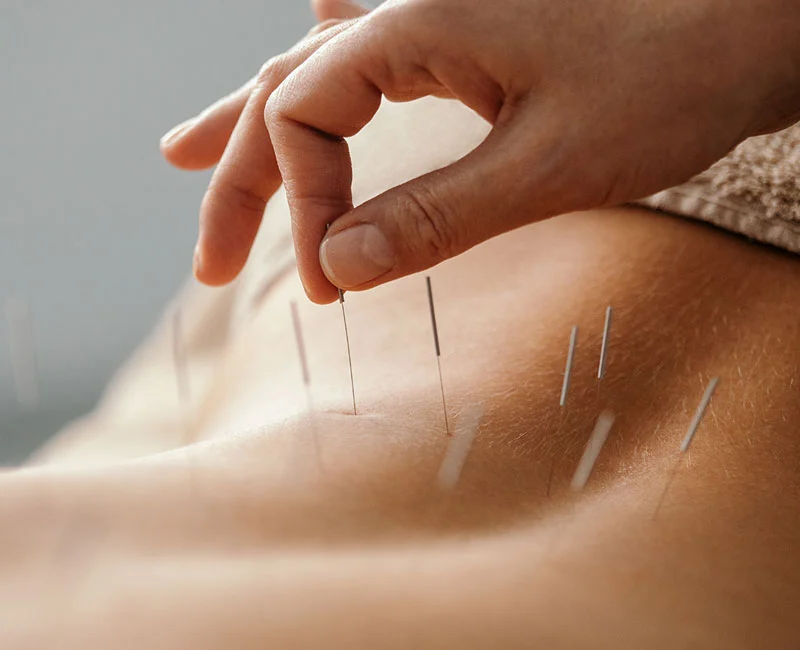When my doctor first suggested I try acupuncture to relieve my lower back pain, I was dubious. Would my Medicare Advantage plan pay for it? To my surprise, it would. Was it available nearby? It was.
But I was still doubtful, based on what little I knew about how acupuncture works. It was invented in China several thousand years ago and rests on the belief that energy courses through the body along pathways called meridians. When they become blocked or out of balance, inserting hair-thin needles at the right points in the meridians can unblock or rebalance that energy.
I have trouble believing in things I can’t see, hear, touch, taste or smell and that have no scientific explanation.
Physiotherapy—something I could understand—hadn’t helped my back. I was supposed to believe acupuncture would?
Finally, egged on by friends, who were probably tired of listening to me complain about my back, I did some research online. I found lots of acupuncture studies, and they reported that it can successfully treat a host of problems.
For starters, there is evidence that it can ease chronic pain—including lower back pain like mine. It can also reduce the inflammation and misery of osteoarthritis and relieve headaches and migraines.
Acupuncture can also help resolve problems with digestion, including the nausea and vomiting that can be side effects of chemotherapy. It is effective in lowering high blood pressure and can ease depression and anxiety. It’s being used today to treat PTSD, addictions, allergies, hot flashes, incontinence and more. Much more.
I’m leery of treatments that claim to be able to cure a whole range of unrelated maladies. If something seems too good to believe, it probably is, in my experience.
So I continued to stall. I told myself that, at 88, my creaky old body was probably too far gone for an acupuncture rescue. Further rummaging online, however, turned up the information that, though older people are often left out of research, many acupuncture studies have focused on us because it’s good for so many of the things that ail us. And nobody’s suggesting it should replace Western medicine. Often, it’s used alongside the usual therapies—medications for high blood pressure, for example—to improve their results.
The clincher came when my daughter reminded me that acupuncture cured her own back problem, which was much worse than mine. I’d forgotten about that. I made an appointment.
At our first session, Laura, my acupuncturist, described what she was about to do and how it worked. I lay down on my back with my clothes pushed aside so that the middle of my body was exposed, and Laura inserted more than a dozen sterile, extremely thin needles into my midriff, scalp, arms, legs, hands and feet.
The needles didn’t hurt going in and they barely penetrated my skin. Mostly, I felt a slight pressure with each one, occasionally a brief, sharp pinch. Laura focused heat lamps on the areas she’d needled, then left me to relax for about 20 minutes, after which I got 10 minutes of massage that felt wonderful.
Western scientists have a number of theories about acupuncture. Some believe the needling stimulates a type of nerve that can block the transmission of pain signals to the brain. Some say it triggers the release of hormones and other healing biochemicals, such as endorphins to relieve pain, melatonin for sleep problems and so on. Still others point out that acupuncture affects so many different bodily functions—breathing, heart rate, blood pressure, circulation, the immune system—that it will take a very complex theory to explain what it does.
For two days after my first session with Laura, I had no back pain. Then it returned, but that was OK. I didn’t expect a quick cure. After my second session, as I got behind the wheel of my car, I felt almost euphoric. I couldn’t wait to go back again. Alas, so far that feeling hasn’t returned.
During the following weeks, acupuncture continued to give me a couple of days of pain relief after each treatment. In addition, to my surprise, the insomnia that had been wearing me out became a rare occurrence. I’d mentioned to Laura that it was a problem, and she’d placed needles accordingly.
I’ve had several months of acupuncture now, and progress has been gradual. Most weeks, I have little or no back pain for three or four days after treatment—sometimes for longer. I still have insomnia, but not often. Once, when I had to go two weeks without acupuncture, it returned with a vengeance.
Laura told me that many of her patients get greater relief sooner than I have. But I remind myself that my daughter’s back was so bad, she couldn’t lie flat. It took three years of acupuncture, but by the end, she could sleep on her back again, and the pain was completely gone.
So I’m hanging in for however long this takes.

Flora Davis has written scores of magazine articles and is the author of five nonfiction books, including the award-winning Moving the Mountain: The Women’s Movement in America Since 1960 (1991, 1999). She currently lives in a retirement community and continues to work as a writer.



